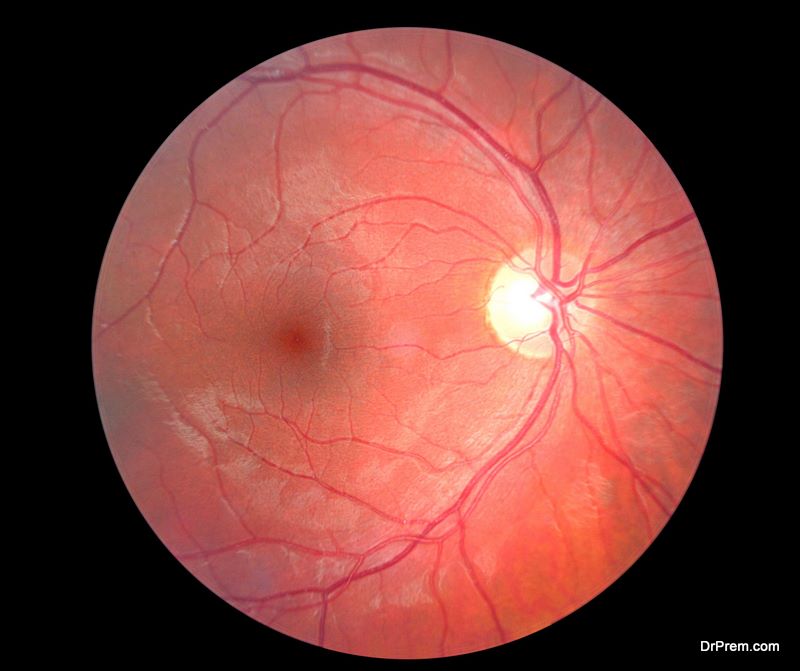If you’ve ever experienced tiny spots or specks that seem to drift around in your field of vison, you’re certainly not the only one – these flecks are known as eye floaters, and for the most part are a very common phenomenon. Although there is usually little cause for alarm for the most part due to these being quite natural, there are some instances where attention might be required. In this article, we take a look at what eye floaters and flashes are all about and give you some idea of when they might start to represent more of a concern to your health.
What are eye floaters?
 If you’ve already seen your optometrist in St Kilda for eye flashes, you might already know a thing or two about this condition. If not, listen up: basically, eye floaters appear when small fragments of the eye’s gel-like vitreous separate within the inner back portion of the eye. This is often associated with the aging process – although the vitreous has a gel-like consistency when we’re younger, as we get older this gel begins to slightly liquefy. The floaters we see are the undissolved gel particles that occupy this liquid centre.
If you’ve already seen your optometrist in St Kilda for eye flashes, you might already know a thing or two about this condition. If not, listen up: basically, eye floaters appear when small fragments of the eye’s gel-like vitreous separate within the inner back portion of the eye. This is often associated with the aging process – although the vitreous has a gel-like consistency when we’re younger, as we get older this gel begins to slightly liquefy. The floaters we see are the undissolved gel particles that occupy this liquid centre.
Although you might see a few floaters every now and then, they only become a medical concern when you see a significant number of floaters all at once, and particularly if this shower of sports is also paired with some kind of flash of light. This may very well indicate that posterior vitreous detachment is occurring, which involves the vitreous is pulling away from your retina. This might not be the only cause, however – it may also indicate that the retinais becoming dislodged from eye’s rear inner lining. A detached retina is very much a medical emergency, and immediate treatment is required to ensure that permanent vision loss does not occur.
What causes the flashes in eyes?
Eyes work by transmitting light signals in the form of electrical signals to your brain via the optic nerve. Your brain will then interpret these signals as whatever you’re seeing. This same electrical impulse can also be sent in the event that your retina is stimulated by be physically manipulated in some way, such as being touched or pulled. When this occurs, the brain interprets this sensation as a flash, which is referred to as a photopsia.
There is a spectrum related to this flashing that is dependent on how severely the retina is manipulated, meaning that the flashing can be a quick one off or continue until the retina is properly tended to and repaired. There are many reasons why these conditions can occur, with some medical conditions often being the root cause. These medical conditions can include things like short sightedness, interior eye inflammation, cataract surgery, some forms of laser surgery and diabetes.
How can you get rid of eye floaters?
 Although they might sound a bit scary, eye floaters in most instances are completely harmless and will fade away over time by themselves. This means that no treatment is typically required – only a little bit of patience. Larger floaters and those that stick around for a long time will often not decide to disappear by themselves, though, so in these situations it is best that you consult a professional, particularly if you’re finding that the floaters are a bother in your day-to-day life. In these situations, laser treatment is often recommended, particularly as it is much safer when compared to the older vitrectomy procedure.
Although they might sound a bit scary, eye floaters in most instances are completely harmless and will fade away over time by themselves. This means that no treatment is typically required – only a little bit of patience. Larger floaters and those that stick around for a long time will often not decide to disappear by themselves, though, so in these situations it is best that you consult a professional, particularly if you’re finding that the floaters are a bother in your day-to-day life. In these situations, laser treatment is often recommended, particularly as it is much safer when compared to the older vitrectomy procedure.
Article Submitted By Community Writer




